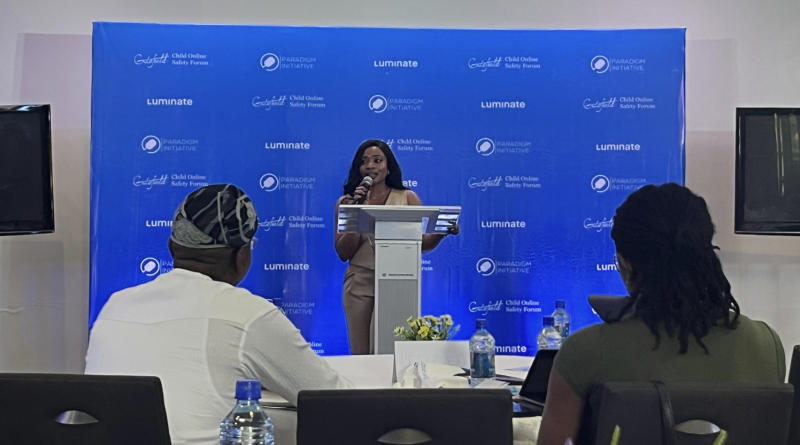9 in 10 Nigerian children face online risks- Report
A new report by the Nigerian Communications Commission (NCC) has shown that 9 in 10 Nigerian children face at least one form of cyber risk, with many reporting cases of sexual exploitation and harassment while using the internet.
The revelation was made by Shirley Ewang, the Lead, Policy and Advocacy at Gatefield, on Monday in Abuja during the Child Online Safety Forum, organised by Gatefield in collaboration with Paradigm Initiative and Luminate.
Rising online threats to children
According to Ms Ewang, findings from the NCC report show that 97 per cent of Nigerian children have experienced one form of sexual exploitation while using the internet, while 89 per cent reported receiving unsolicited sexual content or requests.
She said the figures highlight the need for urgent action to safeguard children’s safety online, warning that the internet, though a tool for learning and innovation, has increasingly become a space where minors face bullying, grooming, and exploitation.
“We read a report conducted by the Nigerian Communications Commission which flagged serious child online safety issues. 90 per cent of Nigerian children are facing at least one cyber risk,” she said.
“Every half second that a child connects to the internet for the first time, they are potentially exposed to these risks.”
Ms Ewang described the situation as a “growing epidemic” and called for collective action to protect young internet users across the country.
More data
Beyond children, Ms Ewang also presented findings from Gatefield’s “State of Online Harms Report”, a comprehensive assessment of Nigeria’s digital landscape.
The report found that 50 per cent of Nigerian internet users experience online harms regularly, including misinformation, hate speech, cyberbullying, and identity theft.
It further revealed that 58 per cent of these harms target women, especially those in politics, media, or leadership positions.
According to the study, X (formerly Twitter) accounts for 34 per cent of reported online harms in Nigeria, followed by Facebook, WhatsApp, and Instagram.
She added that 33 per cent of Nigerians distrust major tech platforms to keep users safe online, citing weak content moderation, lack of local accountability, and absence of enforcement mechanisms.
Ms Ewang called for the development of a comprehensive online safety bill and stronger regulatory frameworks to ensure platform accountability.
She also recommended digital literacy campaigns, gender-sensitive interventions, and the creation of a digital citizens’ charter to empower Nigerians to stay safe online.
Child online safety in Nigeria
Child online safety refers to the protection of children from harmful or exploitative content, interactions, or experiences in the digital space.
READ ALSO: Nigeria’s fertility rate drops to 4.8 children per woman — NDHS
It involves ensuring that children use the internet safely and responsibly, without exposure to online bullying, grooming, sexual exploitation, or other digital risks.
According to NCC, Child Online Protection (COP) is an initiative established by the International Telecommunication Union (ITU) in November 2008 to promote children’s online safety globally.
The ITU issued its first set of COP guidelines in 2009, and following the rise in internet use among children during the COVID-19 pandemic, updated them in July 2020 to address emerging risks.
In May 2025, PREMIUM TIMES reported that President Bola Tinubu condemned child bullying in Nigeria and globally, citing studies that show about 65 per cent of school-age children in the country have experienced some form of physical or psychological abuse.
He said the government had begun reviewing the Child Rights Act (2003) and the Violence Against Persons (Prohibition) Act (2015) to expand protection for children and strengthen nationwide enforcement.
He also noted that the Cybercrime Act was being leveraged to tackle cyberbullying, online exploitation, and related abuses.
Despite these efforts, a recent report shows that Nigerian children still remain increasingly vulnerable to harassment and exposure to harmful online content.

